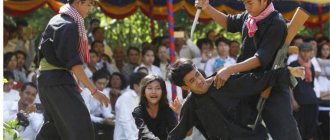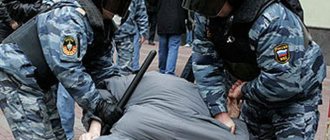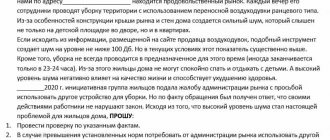Everything about criminal cases
- the question of how to qualify the actions of a guilty person who, before the search begins, admits guilt and voluntarily gives up items - has long been resolved in judicial practice, there are clarifications of the Supreme Court on this matter:
Confession upon arrest
- according to clause 29
Plenum No. 58,
confession
after arrest is not considered such.
This thesis of the Supreme Court is categorical and under the circumstances you described, there is no confession and there is no chance of convincing the court to admit it. (More details about the nuances of this mitigating circumstance can be read here: Confession
- three varieties (according to the possibilities of use)
Active assistance during arrest
- in paragraph 30
Plenum No. 58 (expanding the concept of active assistance) there is a fragment that coincides in meaning with the actions of voluntary surrender of objects, so it is indicated that if a person “
indicates the place of concealment of the stolen property, the location of the instruments of crime, other items that can serve as means of detecting a crime and establishing the circumstances of the criminal case).
- but I think it is impossible to apply this instruction of the Supreme Court to your circumstances, according to the general meaning of paragraph 30
Plenum No. 58 (which contains the most complete instructions on what should be interpreted as active assistance), the actions of the perpetrator must have some practical value for the investigation. At a minimum, this value can be expressed at least in actions that save time and organizational efforts of the investigative authorities. In practice, active assistance is most often expressed in testifying against accomplices. But in your case, there was no value in the actions.
Voluntary extradition upon arrest
- according to note 1
to 228 of the Criminal Code and
paragraph 19
of Plenum No. 14, voluntary delivery of narcotic drugs means the issuance by a person of such funds to government officials if this person has a real opportunity to dispose of them in another way.
- in the circumstances you described, it is impossible to assert the voluntary nature of extradition; its involuntary nature is too obvious.
Admission of guilt upon arrest
- in paragraph 29
Plenum No. 58 contains an indication that admission of guilt immediately after arrest can be taken into account as a mitigating circumstance.
In this case, it will belong to the group of so-called it belongs to the group of other mitigating
circumstances (which are mentioned in
Part 2 of 61 of the Criminal Code
).
This type of mitigating factors is characterized by the fact that they are not mandatory for the court, therefore, in cassation they cannot play the role of grounds for changing the sentence (More information about the use of mitigating factors in the cassation stage can be read here: Mitigating circumstances
in cassation, methods of application.
TOTAL
:
- the very direction of thought is correct, since confession and active assistance belong to the group of mandatory mitigating
circumstances and if these mitigating factors (not taken into account in previous instances) are recognized at the cassation stage, then this is a 100% mitigation of the sentence.
- but unfortunately, there is no confession, there is no voluntary extradition, that is, there are grounds for the cassation court to recognize a mitigating circumstance, paragraph 1, 61 of the Criminal Code
not seen.
- admission of guilt - there is (albeit a big question, as it was not confirmed in court), but for cassation the role of grounds for reversing the verdict ( Part 1 401.15 of the Code of Criminal Procedure
) can't play.
— I believe that none of the circumstances you cited are of value for the cassation appeal.
RF Armed Forces: reporting facts known to the investigation cannot be considered assistance in solving a crime
Friends!
Actively contributing to the solution of a crime consists of informing the investigative authorities of new information that can help in solving the crime, about unknown facts that have not been established by them, the Supreme Court explains.
Such actions are committed by the perpetrator voluntarily, and not under pressure from the evidence available to the preliminary investigation authorities, the highest authority notes.
The crux of the matter
The Supreme Court considered, by selective cassation, a criminal case of receiving 6 bribes, in which the accused was first sentenced to 7.5 years, and then the court of cassation, recognizing active assistance in the investigation of crimes as a mitigating circumstance, commuted the sentence to 4.5 years in prison.
The Deputy Prosecutor General did not agree with this decision, considering that the court unreasonably credited the convict for allegedly actively contributing to the investigation of crimes and gave him an overly lenient sentence, illegally applying the provisions of Article 64 of the Criminal Code of the Russian Federation. In his submission, he drew attention to the fact that a criminal case was initiated in January 2021, but the defendant was hiding from the preliminary investigation authorities, was wanted, and appeared for questioning only 2.5 years later. During interrogation as a suspect, he only confirmed information already established by the testimony of a number of witnesses, the results of operational search activities, and other evidence; he only partially admitted his guilt, a representative of the Prosecutor General’s Office claims.
Position of the Supreme Court of Russia
The cassation ruling states that the accused voluntarily arrived at the investigative department and gave “confession”, not knowing the degree to which the investigative authorities were aware of his actions. In the decision to bring the person as an accused and in the indictment, the criminal acts are described, among other things, as the accused testified. Thus, he actively cooperated with the preliminary investigation authorities, as a result of which the criminal case was investigated and considered by the court as soon as possible, the cassation court decided.
However, the cassation ruling does not provide the data on the basis of which these conclusions were made, the Supreme Court believes.
It recalls the position of the Plenum that active assistance in the detection and investigation of a crime can be recognized as a mitigating circumstance if a person has provided the inquiry or investigative authorities with information relevant to the detection and investigation about the crime committed with his participation or about his role in the crime crimes (paragraph 30 of the resolution of December 22, 2015 No. 58).
For example, it indicated accomplices to the crime, persons who can give testimony, indicated the location of the instruments of the crime, other objects and documents that can serve as means of detecting the crime and establishing the circumstances of the criminal case, the Supreme Court clarifies.
“Thus, within the meaning of the law, active assistance in the detection and investigation of a crime consists of the active actions of the perpetrator, and can be expressed in the fact that he provides the preliminary investigation authorities with previously unknown information about the circumstances of the crime, gives truthful and complete testimony that contributes to the investigation . Such actions are committed by the perpetrator voluntarily, and not under pressure from the evidence available to the preliminary investigation authorities,” the highest authority notes.
Meanwhile, in this case, the accused appeared before law enforcement agencies more than two years after he became aware of the start of a preliminary investigation against him, that is, an indication in the cassation ruling that the actions of the accused contributed to the investigation of the case “as soon as possible” by this circumstances.
At the same time, during the search for the defendant, law enforcement agencies collected testimony from witnesses and evidence of the defendant’s involvement in the crimes.
“From the materials of the case, it is clear that the testimony (of the accused) is similar in content to the testimony of witnesses previously questioned in the case.
Recognizing the presence in the actions (of the accused) of signs of actively contributing to the detection and investigation of crimes, the Judicial Collegium of the Fourth Cassation Court of General Jurisdiction in its ruling did not indicate what exactly they were. The cassation ruling does not contain information about what information about the circumstances of the commission of crimes, unknown to the preliminary investigation authorities, (the accused) reported, and how this contributed to speeding up the investigation,” the Supreme Court points out.
He also believes that the court did not motivate the application of Article 64 of the Criminal Code of the Russian Federation: the decision does not contain data on what particular circumstances were recognized by the court as exceptional and how they significantly reduced the degree of public danger of crimes.
In this connection, the Supreme Court decided to transfer the case for a new trial to the cassation court.
Source
Read more ➤
Legislative framework of the Russian Federation
valid Editorial from 17.10.2012
detailed information
| Name of document | “REVIEW OF THE SUPERVISION PRACTICE OF THE JUDICIAL COLLEGE FOR CRIMINAL CASES OF THE SUPREME COURT OF THE RUSSIAN FEDERATION FOR THE FIRST HALF OF 2012” (Approved by the resolution of the Presidium of the Supreme Court of the Russian Federation dated October 17, 2012) |
| Document type | review |
| Receiving authority | Supreme Court of the Russian Federation |
| Acceptance date | 17.10.2012 |
| Revision date | 17.10.2012 |
| Date of registration with the Ministry of Justice | 01.01.1970 |
| Status | valid |
| Publication |
|
| Navigator | Notes |
“REVIEW OF THE SUPERVISION PRACTICE OF THE JUDICIAL COLLEGE FOR CRIMINAL CASES OF THE SUPREME COURT OF THE RUSSIAN FEDERATION FOR THE FIRST HALF OF 2012” (Approved by the resolution of the Presidium of the Supreme Court of the Russian Federation dated October 17, 2012)
3.2.2. Actively contributing to the detection and investigation of a crime is a circumstance mitigating punishment (clause “and” part 1 of article 61 of the Criminal Code of the Russian Federation).
The judicial panel, having satisfied the supervisory appeal of convicted B., changed the verdict of the Voskresensky District Court of the Nizhny Novgorod Region dated April 29, 2008 and the resolution of the Presidium of the Nizhny Novgorod Regional Court dated November 2, 2011, indicating the following.
In accordance with paragraph “i” of Part 1 of Art. 61 of the Criminal Code of the Russian Federation recognizes active assistance in the detection and investigation of a crime as one of the mitigating circumstances for punishment.
Within the meaning of the law, active assistance in the detection and investigation of a crime consists of the active actions of the perpetrator aimed at cooperation with the investigative authorities, and can be expressed in the fact that he provides the said authorities with information, including information previously unknown to them, including truthful and complete testimony , participates in investigative actions aimed at consolidating and confirming previously obtained data, indicates the place where the stolen property is stored.
According to the materials of the criminal case, on the day the body was discovered and the criminal case was initiated, B., during interrogation as a suspect, pointed out the circumstances of the crimes committed, and during the search he voluntarily gave up the cell phone and two chains stolen from the victim. During interrogation as an accused, B. fully admitted his guilt and confirmed his testimony when going to the crime scene.
Despite the fact that the court in its verdict referred to the above-mentioned testimony and protocols of investigative actions as reliable evidence, when imposing punishment in violation of paragraph “i” of Part 1 of Art. 61 of the Criminal Code of the Russian Federation, active assistance in the investigation of crimes was not taken into account by the court as a circumstance mitigating B’s punishment.
The Presidium of the Nizhny Novgorod Regional Court, referring in its ruling to B.’s assistance in solving the crime, did not indicate the presence of this mitigating circumstance.
With such data, taking into account the provisions of Art. 10 of the Criminal Code of the Russian Federation and Part 1 of Art. 62 (as amended by the Federal Law of June 29, 2009 N 141-FZ) in their unity, the punishment of B. under Part 1 of Art. 105 of the Criminal Code of the Russian Federation cannot be assigned more than 10 years of imprisonment.
The panel of judges recognized B.’s active contribution to the investigation of crimes as a mitigating circumstance and commuted the sentence imposed on him.
Determination dated May 22, 2012 N 9-D12-3







